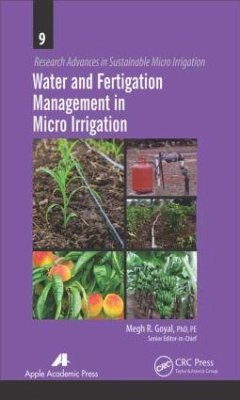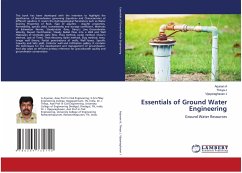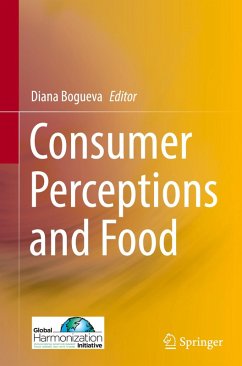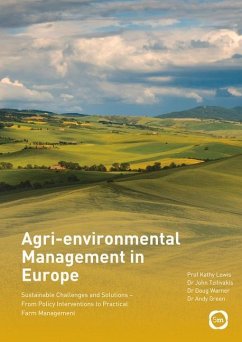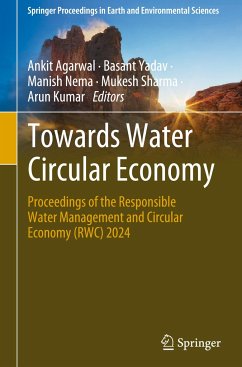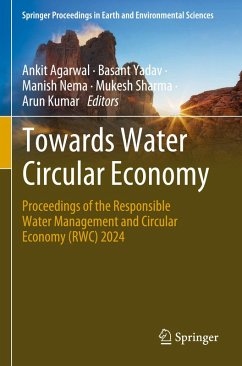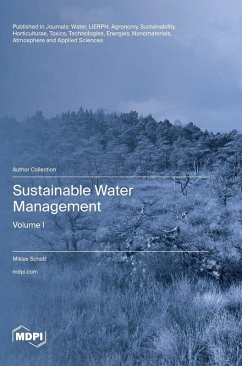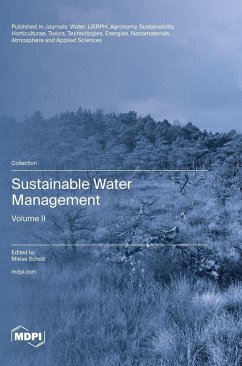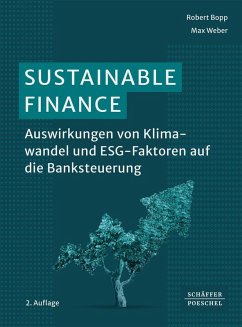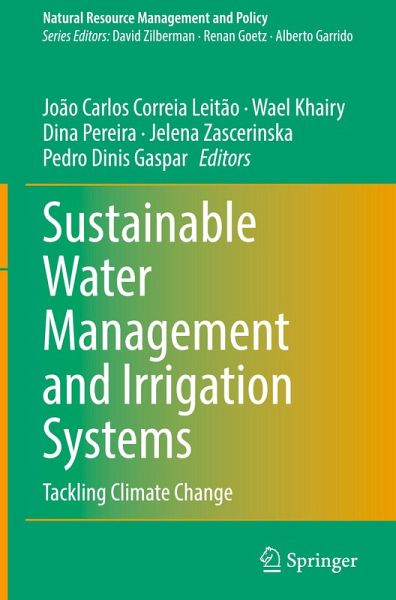
Sustainable Water Management and Irrigation Systems
Tackling Climate Change
Herausgegeben: Correia Leitão, João Carlos; Khairy, Wael; Pereira, Dina; Zascerinska, Jelena; Gaspar, Pedro Dinis

PAYBACK Punkte
68 °P sammeln!
Globally, different regions are facing severe water shortages. Population growth, changing consumer behavior and climate change seriously affect freshwater availability. Much of the water used for conventional irrigation infiltrates or evaporates and is therefore unusable. Thus, innovative irrigation systems must be developed to exploit largely unused, non-conventional water resources. Additionally, low-cost solutions should be used, with natural and regionally available materials (Low Technology, Low Energy, Low Budget, Easy to Use).The present edited volume aims at: (i) making available holi...
Globally, different regions are facing severe water shortages. Population growth, changing consumer behavior and climate change seriously affect freshwater availability. Much of the water used for conventional irrigation infiltrates or evaporates and is therefore unusable. Thus, innovative irrigation systems must be developed to exploit largely unused, non-conventional water resources. Additionally, low-cost solutions should be used, with natural and regionally available materials (Low Technology, Low Energy, Low Budget, Easy to Use).
The present edited volume aims at: (i) making available holistic approaches to sustainable water and natural resources management systems; (ii) presenting evaluation results of new micro-irrigation technologies, tested in different international contexts; (iii) contributing to effectively combating the negative impacts of climate change on water availability, agriculture and food security; and (iv) providing implications for policymakers,entrepreneurs and researchers interested in water management issues and sustainable development goals (SDGs).
The present edited volume aims at: (i) making available holistic approaches to sustainable water and natural resources management systems; (ii) presenting evaluation results of new micro-irrigation technologies, tested in different international contexts; (iii) contributing to effectively combating the negative impacts of climate change on water availability, agriculture and food security; and (iv) providing implications for policymakers,entrepreneurs and researchers interested in water management issues and sustainable development goals (SDGs).



